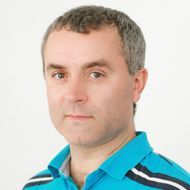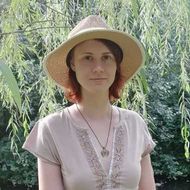- A
- A
- A
- ABC
- ABC
- ABC
- А
- А
- А
- А
- А
- HSE Campus in St. Petersburg
- Saint-Petersburg School of Social Sciences
- Department of Political Science and International Affairs
- News
- 111th Annual Meeting of the American Political Science Association: Notes from a Participant
-
Departament
- About the Department
- Faculty and Staff
-
Annual Conference “The October Readings”
-
More About the Conference
-
Upcoming Conference
-
Archive
-
-
Academic Seminar
-
Upcoming seminars
-
Previous Seminars
-
198068 Saint Petersburg
Griboyedov channel embankment, 123, Room 324
t. +7 (812) 644-59-11, plus 61415
The Department was created on the basis of the Department of Politics, which was established in 2005. The main purpose of the department is to provide today’s students with professional training in the fields of political analysis and sociopolitical engineering, as well as in creating a special creative atmosphere that allows for the formation and development of a society of political experts who are capable of not only carrying out professional research, but also proposing and implementing solutions to relevant Russian and international problems.
Springer, 2025.
Sokolova F. K., Marina M. Panikar, Beloshitskaya N. N.
Polar Geography. 2025. P. 1-17.
In press
Magdalena Gaete, Khalid H., Sofia Glebova et al.
In bk.: Bridging Horizons: Social Entrepreneurship in Malaysia and Russia. Kuala Lumpur: UTM Press, 2025. P. 77-92.
Gál A.
OxonCourts Judicial Studies Graduate Colloquium. OxonCourts Judicial Studies Graduate Colloquium. University of Oxford, 2019

111th Annual Meeting of the American Political Science Association: Notes from a Participant
The conference was entitled ‘Diversities reconsidered: Politics and Political Science in the 21st Century’. It attracted over 5,000 participants, with 20 to 30 panel sessions taking place concurrently. The first panel, which I attended as a guest, was ‘Marginalization, Inclusion and the Future of Political Science: a panel honoring David Easton’. It was chaired by Kristen Monroe, professor at the University of California, Irvine, and Vice President of APSA. The first speaker was Rodney E. Hero, University of California, Berkeley, and the new President of APSA. He set the tone for the roundtable discussion and spoke about both the importance of the diversity of methods in political science, and the diversity of American political scientists, a group which should include various minorities. For me, as Vice President of the Russian Political Science Association (RPSA), this panel was a very interesting example of how substantive problems were discussed in combination with the problems of the professional association’s work.
The roundtable session ‘Perestroika and Perspectives: U.S. Political Science Between Past and Future’ was chaired by Jeffrey C. Isaac, Indiana University, Bloomington. This was oversubscribed with standing room only for many of the audience. The first speaker was Kristen Monroe as one of the authors of the famous ‘Mr. Perestroika’ manifesto of 2000. The discussion was about adapting modern political science methods to the real problems of today’s politics.
I also participated in the panel session ‘Authoritarian Legacies and Challenges to Post-authoritarian Democracies’. It was a full panel, with four speakers, a chair and a discussant (Monika Nalepa from the University of Chicago implemented both roles). Giovanni Capoccia from the University of Oxford spoke about how the intensity of lustration in three Western sectors of the post-war Germany influenced the levels of democracy ideas’ perception among the population of these sectors. Milada Vachudova from the University of North Carolina, Chapel Hill, analysed the correlation between the levels of corruption and party competition in East-European countries. Professor Stephen E. Hanson, College of William and Mary, spoke on ‘Russia, Ukraine, and the Borders of Europe’.
And then there was our panel ‘Political Science in Russia: Reflections on 60 Years of Development’, which was organized by Olga Malinova, researcher at the Institute of Scientific Information for Social Sciences, Russian Academy of Sciences, and professor at HSE and Moscow Institute for Foreign Relations (MGIMO), who also chaired the panel. The first speaker was Oxana Gaman-Golutvina, President of the RPSA and Department Head at MGIMO, and the topic of her presentation was ‘Political Science in Russia: The State of Art and Prospective’. She was followed by Andrei Tsygankov, professor at San Francisco State University, who spoke on ‘Russian International Relations Theory Today and Tomorrow’. The third speaker was Leonid V. Smorgunov, Department Head at St. Petersburg State University and Chair of RPSA Academic Council. He gave a presentation on ‘Criticism of Political Reality and Development of Political Science in Russia’. Next was a presentation by Olga Malinova, entitled ‘Who makes a ‘Public Face’ of Political Science in Russia?’. The author of this article concluded the panel with a presentation on ‘Political Science in Russia: Academicians and Experts’.
The second and third days of the conference were as intensive as the first one. Participants discussed such issues as ‘Global Governance and the United Nations, 70 Years after the San Francisco Charter’, where they debated UN tasks in global humanitarian governance, and the role of NGOs and diasporas in the implementation of these tasks. The panel ‘On Human Dignity and Human Rights’ attracted a great deal of interest, and discussed, among other things, human responsibility to future generations.
According to the speakers at the roundtable session ‘Beyond Our Borders: Does Political Science have an Impact on Other Disciplines?’, political science today tends to draw concepts and ideas from other neighbouring sciences, such as sociology, history, and economics, rather than influencing these sciences. In order to change the situation, according to Ian Shapiro, whose book The Flight From Reality in the Human Sciences is well known in Russia, political scientists should focus on solving those problems vital for society rather than focus on searching for projects where they can use the concepts and methods they already know well.
Prepared by Alexander Sungurov

